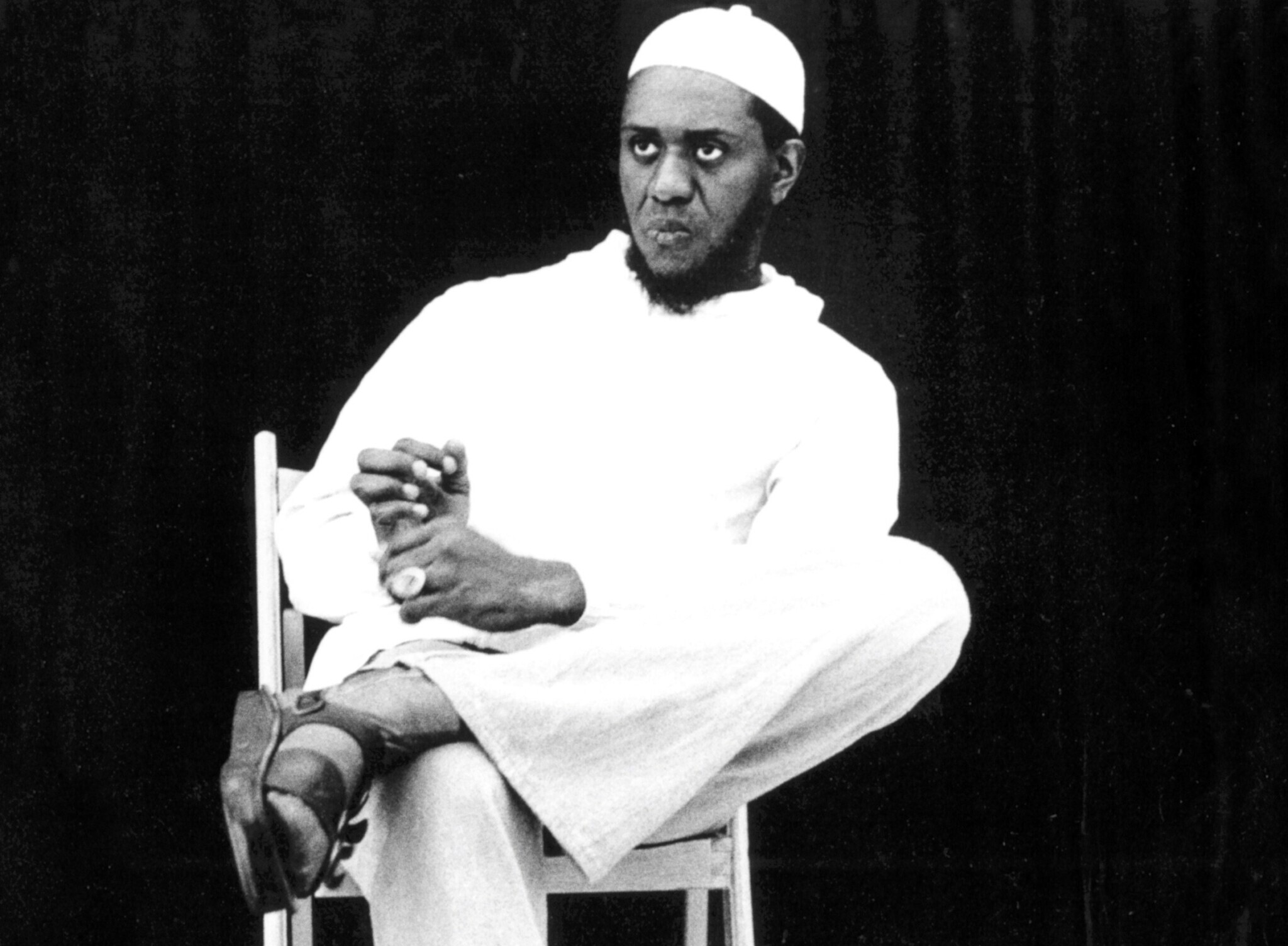
On September 15, label Luaka Bop is issuing a deluxe 2LP box set of the 1977 album Pharoah by Pharoah Sanders.
Originally released by the India Navigations label, the new collection includes the album’s original three tracks as well as two unreleased live versions of the song “Harvest Time,” a 24-page booklet containing rarely seen photographs, essays and an interview with Sanders. The iconoclastic tenor saxophonist signed off on the reissue before his death in 2022 at age 81. A series of forthcoming international concerts have been slated to explore the material of Pharoah.
Well into the age of revivalism and archivist releases, Pharoah Sanders is an obvious subject of interest, rediscovery and, for some, initial discovery. Yet whether Pharoah and its unreleased material is a certain celebration or revivalist hard-sell remains to be seen and heard.
The Arkansas-born Sanders first came to prominence in 1965, when he joined John Coltrane’s band. The presence and intensity of Sanders’ playing helped propel Coltrane even deeper into the fiery improvisations and implicit spirituality that defined Coltrane’s final musical explorations.
For many, Sanders’ 1966 release Tauhid remains a high mark of the free jazz era, forgoing aggressive group-improvisations for contemplative, droning performances buffeted by Eastern and African percussion. His 1969 epic “The Creator Has a Master Plan” from his album Karma became the de facto anthem of spiritual jazz. “The Creator…” found favor with the eventual hip hop and acid jazz communities and even appeared on the popular radar in an episode of The Sopranos.
In total, before his passing Sanders released some three dozen albums as a leader while also co-creating powerful albums with notable likeminded players including Sun Ra, Alice Coltrane and Don Cherry. The 1991 Sonny Sharrock album Ask the Ages (which included longtime John Coltrane drummer Elvin Jones) was considered a benchmark release for both Sanders and guitarist Sharrock. Both players were then-approaching middle age and both were in top form. Closing track “Many Mansions” took John Coltrane’s 1964 composition “Equinox” and ran it through a dark filter of Sharrock’s molten-lava overdriven guitar and found Sanders still in full-ignition mode. That album had an immediate and intense influence on Gen X musicians, particularly in the indie-rock community, blurring the final line between free jazz and rock guitar annihilation.
Which brings us to Pharoah. In many ways, it is an album that moved contrary to Sanders’ aforementioned previous work while also swimming upstream of the then-‘70s jazz fusion and jazz-rock albums that reigned supreme. An original vinyl copy of Pharoah can command top dollar. But with the advent of eBay and Discogs, an original release from most musicians is inexplicably valuable.
The opening cut “Harvest Time” leads in with Sanders in a subdued mood, offering gentle melodic ideas over the minimal underpinning of the phaser-pedal soaked guitar of Tisziji Muñoz and ostinato upright bass line from Steve Neil. This opening riff of this album centerpiece owes more to the cool-soul of Isaac Hayes “Hung Up On My Baby” than Weather Report.
Luaka Bop has released a frustratingly truncated promo clip of “Harvest Time,” as the real magic occurs when the opening soul riff dissolves into a harmonium-led drone where Sanders and band widen the theme into a measured and unhurried glory. The 14-minute performance of “Love Will Find a Way” features Sanders on vocals, it is essentially a showcase for the Santana-tilted guitar excursions of Muñoz over a major-key collective groove of percussion and organ. Album closer “Memories of Edith Johnson” is tantamount to a gospel sendoff. While the church-sanctified organ of Clifton “Jiggs” Chase dominates, Sanders and Muñoz offer up brief melodic ideas, and the wordless vocals are admittedly more wince-inducing than wondrous.
Critical response has viewed the album as both overwrought and underrated. In many ways, Pharoah is both. Sanders had spent two years with John Coltrane, developing jazz to the point of making the music sound alien, even terrifying, to ears fine-tuned to traditional bebop changes. Yet Sanders was closer in age to the R&B and soul generation who forged Motown and Stax than the Harlem Renaissance so his forays into those sounds are both appropriate and likely.
Whether or not Pharoah garners this sort of adoration decades after its original release really depends on the temperament of the listener. The same artist who helped coalesce Alice Coltrane’s game-changing Vedanta-jazz on her 1971 release, Journey in Satchidananda, is also responsible for the smooth-disco-jazz dross of Pharoah’s follow up from 1978, Love Will Find a Way.
Pharoah Sanders body of work and place in jazz history is long-since secure; only time will tell if the “uncovering” of the decidedly uneven Pharoah is as worthy and relevant.

Mr. Al Pete and Notsucal Release Their Latest Collab, ‘G4.5’

Dinner Party, Tom Misch and More from the Neighborhood with Mr. Al Pete

An Ultra-Chill Playlist from the Latest Episode of Electro Lounge

Sing Out Loud Festival Returns With Hozier, Beabadoobee, Father John Misty, Vance Joy and More

Chicago Alt-Country Faves Wilco Return to St. Augustine with Indie-Folk Great Waxahatchee

Looking for an Alternative to Spotify? Consider Hopping on the band(camp) Wagon

Khruangbin to Bring ‘A LA SALA’ Tour to St. Augustine in April

Perfume Genius, Flipturn, Tamino + Mitski and 6 New Songs to Stream

Song of the Day | “all tied up” by Glixen



